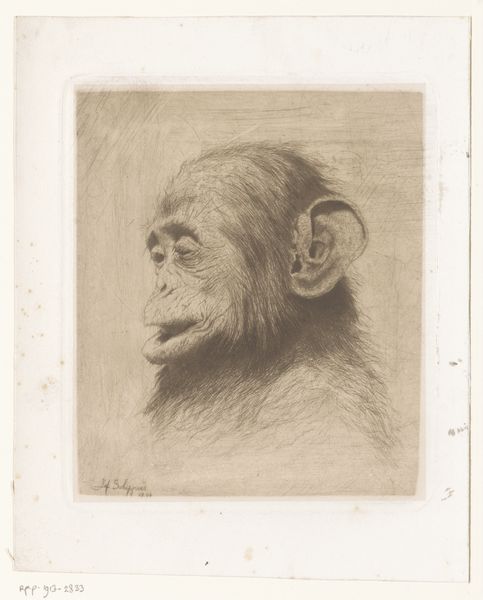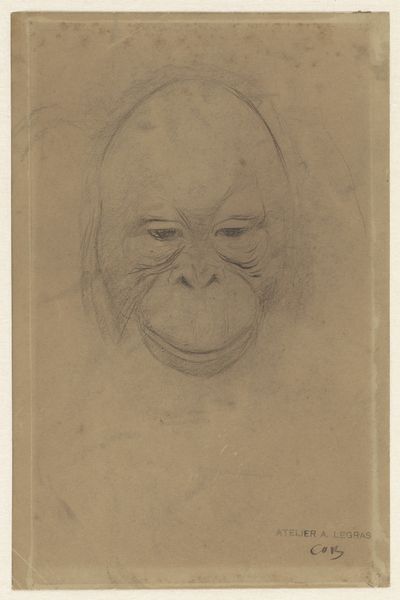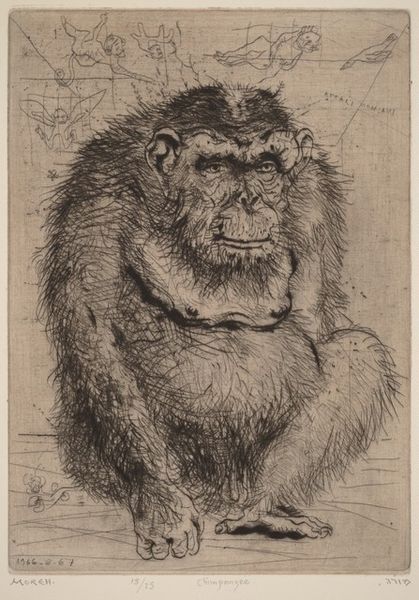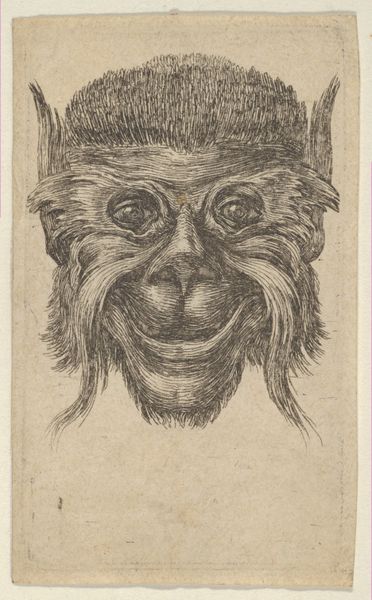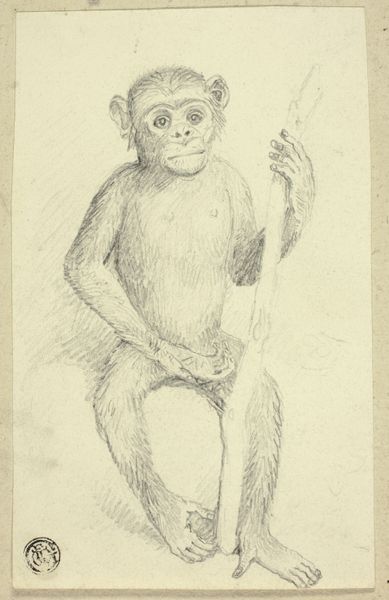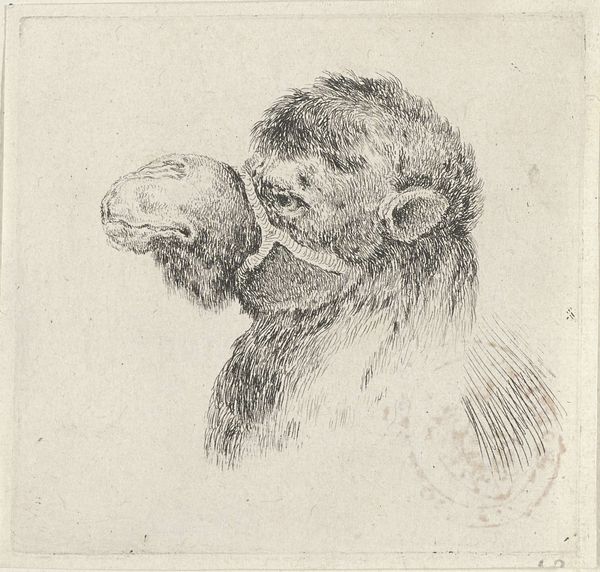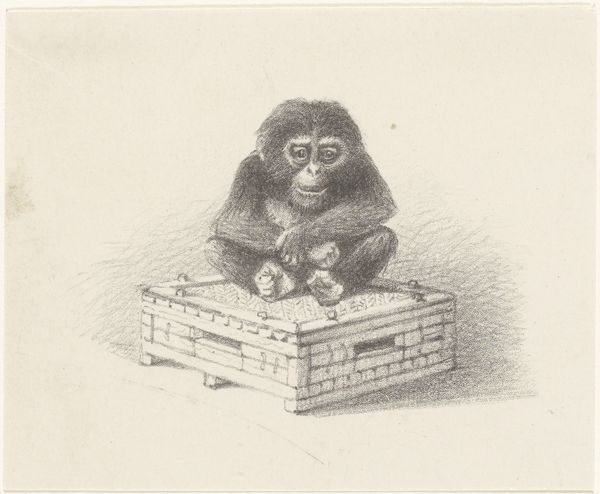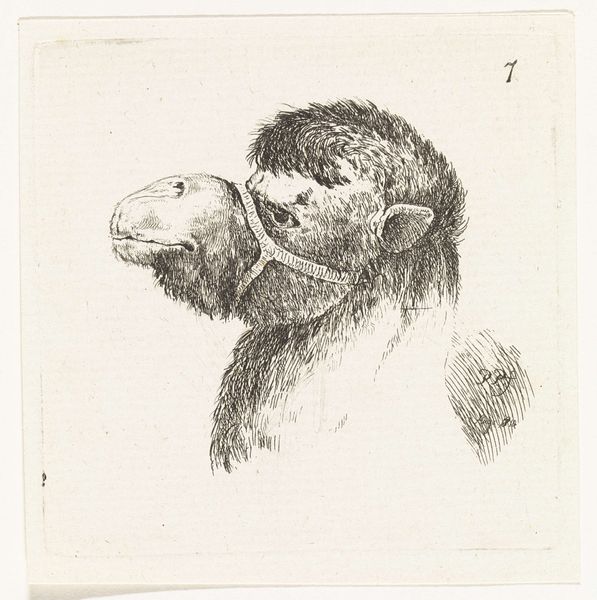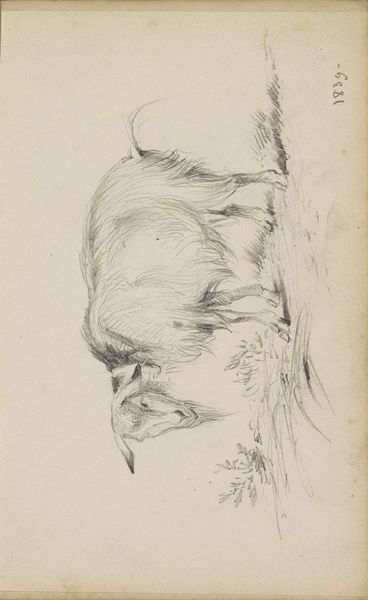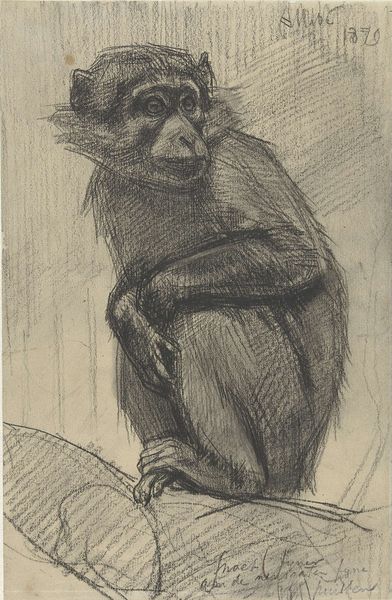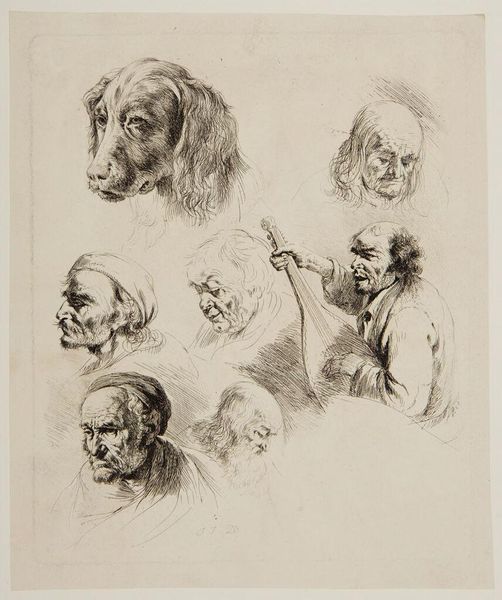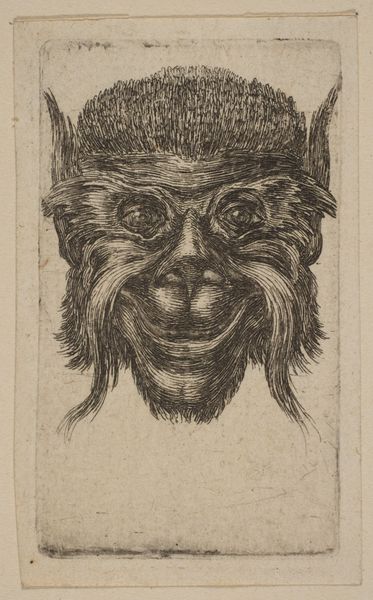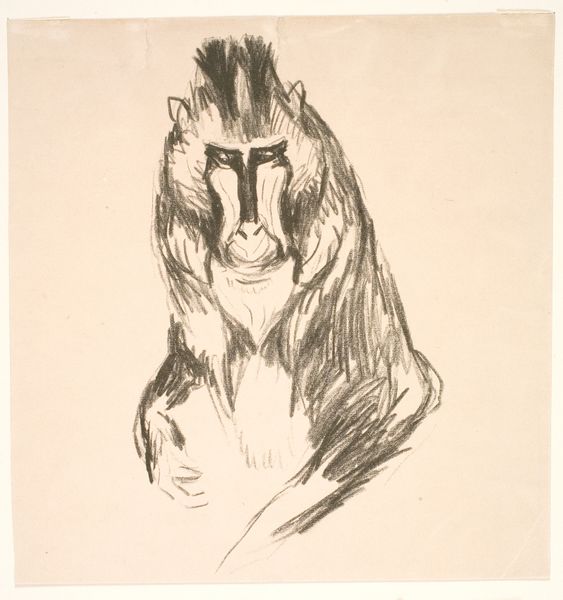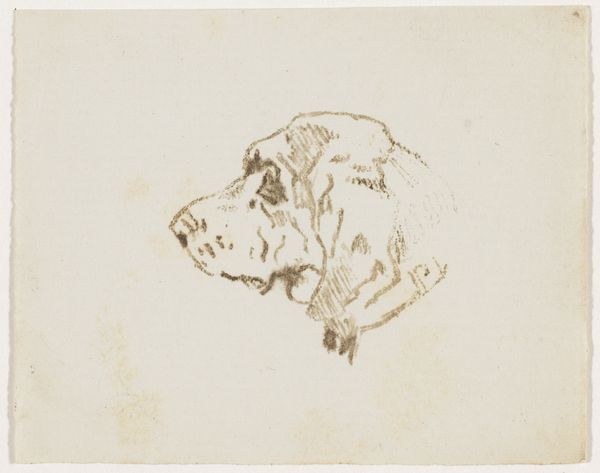
drawing, pencil
#
portrait
#
pencil drawn
#
drawing
#
pencil sketch
#
pencil drawing
#
pencil
#
portrait drawing
#
realism
Dimensions: height 80 mm, width 98 mm
Copyright: Rijks Museum: Open Domain
Editor: This is Theo van Hoytema’s "Apenkop," made sometime between 1878 and 1890. It's a pencil drawing and incredibly detailed. What strikes me most is how human the monkey appears. What do you see in this portrait? Curator: The enduring human fascination with simian forms. We've projected our fears, desires, and reflections onto apes for centuries, a visual tradition with complex roots. Does this image tap into that collective memory for you? Editor: Absolutely. Looking at its face, I can see the subtle intelligence in its eyes and how much it reflects our own, maybe reminding us of our shared ancestry. But is there anything beyond just the human connection? Curator: Think about what else this image evokes. Primates, often inhabiting the "wild," might be interpreted through the symbols of freedom and untamed nature but, depending on cultural context, can sometimes indicate negative traits that we unconsciously project as a collective. Could Van Hoytema be inviting us to confront these contradictions within ourselves? Editor: It’s interesting that something as seemingly simple as a portrait of an ape can contain so much historical and symbolic weight. I hadn't thought of those projected assumptions. Curator: Precisely! Images often function as mirrors, reflecting our inner landscape through the language of symbols and archetypes. Art challenges us to decode this visual vocabulary, revealing the layers of meaning we carry within us. Editor: Thanks! I see this image in a new light, it’s more than just a drawing, it’s also about the symbolism we attach to other species.
Comments
No comments
Be the first to comment and join the conversation on the ultimate creative platform.
